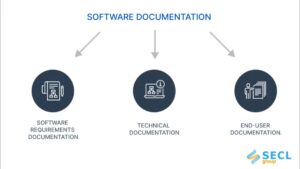News plays a pivotal role in shaping public opinion, informing citizens, and holding power accountable. However, the way news is presented, framed, and prioritized is often influenced by the ownership structures behind media organizations. The impact of ownership on news coverage is a complex issue that has garnered increasing attention in the age of corporate media dominance and consolidation. This article delves into how ownership shapes news content, the potential biases it introduces, and the broader implications for democracy and society.
Understanding the Ownership Structure of News Media
The ownership of news media outlets has undergone significant changes over the past few decades. While news organizations were once independently owned by individuals or families, consolidation has led to a concentration of media power in the hands of a few large corporations. Major conglomerates like Comcast, Disney, and News Corporation now control a substantial portion of the media landscape, including television channels, newspapers, and digital platforms.
This trend of media consolidation has resulted in fewer voices and perspectives in the news industry, raising concerns about the diversity of information available to the public. When a small number of corporations own multiple media outlets, the range of viewpoints and the depth of coverage on important issues can be limited. Furthermore, these corporate owners often have their own financial and political interests, which can influence the content produced by their media properties.
Financial Interests and News Coverage
One of the most significant ways that ownership affects news coverage is through financial interests. Media organizations are businesses, and their primary goal is often to generate profit. The financial pressures placed on news outlets by their owners can lead to changes in the types of stories that are reported, how they are reported, and which stories are ignored altogether.
For example, news outlets owned by large corporations with business interests in certain industries may be less inclined to report negatively on those industries. A news organization owned by a major oil company may downplay the environmental impact of fossil fuel extraction or avoid in-depth reporting on climate change. Similarly, media outlets owned by tech giants may be hesitant to critically examine the practices of big tech companies.
This profit-driven approach can also lead to sensationalism in news coverage. In order to attract viewers and readers, media organizations may prioritize stories that are more likely to capture attention, such as celebrity gossip or scandal, over important but less attention-grabbing topics like policy debates or investigative reporting. The need to maximize profits can therefore compromise the integrity of the news and its role in providing meaningful information to the public.
Political Bias and Ideological Influence
Ownership can also have a profound impact on the ideological orientation of news coverage. When media outlets are owned by individuals or corporations with clear political or ideological leanings, their news coverage often reflects these biases. This is especially evident in the case of news networks and outlets that align themselves with particular political parties or movements.
For example, conservative media outlets like Fox News are known for their right-wing political slant, while liberal outlets like MSNBC often cater to a progressive audience. These networks shape public opinion by framing issues in ways that support their political agendas. This ideological influence can distort the portrayal of news events and reinforce pre-existing political beliefs, contributing to the polarization of society.
In many cases, ownership structures lead to the creation of echo chambers, where news consumers are exposed only to information that aligns with their views. This creates a cycle of reinforcement, where individuals become more entrenched in their political beliefs and less open to alternative perspectives. As a result, the media landscape becomes more fragmented, and meaningful public discourse becomes increasingly difficult.
The Decline of Investigative Journalism
One of the most concerning consequences of media ownership concentration is the decline of investigative journalism. Investigative reporting plays a critical role in exposing corruption, holding the powerful accountable, and uncovering important stories that may not be covered by mainstream news outlets. However, as media organizations prioritize profit and cater to the interests of their owners, investigative journalism has become less financially viable.
Large media conglomerates often focus on entertainment, sensationalism, and click-driven content, which are more lucrative in the short term. Investigative journalism, on the other hand, requires significant resources and time investment, with no guarantee of immediate financial return. As a result, many news outlets have cut back on their investigative teams or outsourced them to independent journalists and smaller organizations.
The decline of investigative journalism has serious implications for democracy. Without robust investigative reporting, citizens are less informed about the actions of their government, corporations, and other institutions. This can lead to a lack of accountability, which in turn undermines the democratic process.
The Influence of Digital Media Ownership
The advent of the internet and social media has radically transformed the media landscape. While digital platforms have democratized information by providing new avenues for news consumption, they have also introduced new challenges in terms of ownership and news coverage. A small number of tech giants, including Facebook, Google, and Twitter, control the vast majority of online news distribution. These platforms curate content based on algorithms that prioritize engagement, often promoting sensational or polarizing stories over nuanced and informative reporting.
The algorithms used by digital platforms are designed to maximize user engagement, which often results in the spread of misinformation, clickbait headlines, and partisan content. This trend can further exacerbate political polarization and undermine trust in traditional news outlets. Furthermore, as these platforms prioritize user-generated content over professional journalism, the role of established news organizations in shaping the public narrative is diminished.
Additionally, the ownership of digital media companies is often opaque, with a lack of transparency regarding the decision-making processes that shape news coverage. This can lead to concerns about corporate influence over the information that is disseminated to the public.
The Role of Independent and Nonprofit Journalism
In response to the negative effects of media ownership concentration, there has been a growing movement toward independent and nonprofit journalism. These organizations are driven by the mission of providing unbiased, in-depth reporting rather than generating profit. Independent outlets often rely on donations, grants, and subscriptions rather than advertising revenue, which allows them to focus on quality journalism without the pressure to sensationalize or cater to corporate interests.
Nonprofit news organizations like ProPublica, The Intercept, and investigative outlets like The Center for Investigative Reporting have played a crucial role in filling the gaps left by traditional media organizations. These outlets provide investigative reporting, analysis, and commentary on a wide range of issues, often with a focus on social justice, environmental sustainability, and government accountability.
By reducing reliance on commercial revenue models, independent and nonprofit journalism offers an alternative to the profit-driven media landscape. These organizations provide an important counterbalance to corporate-owned outlets, ensuring that critical stories are not overlooked or downplayed.
Conclusion: The Need for Media Reform
The impact of ownership on news coverage is a critical issue that has far-reaching implications for society. Media ownership shapes the narratives we hear, the issues we care about, and the way we view the world. The concentration of media power in the hands of a few corporations has led to financial, political, and ideological biases in news coverage, while the decline of investigative journalism undermines the public’s ability to hold power to account.
To mitigate these negative effects, it is essential to promote media reform that prioritizes diversity, accountability, and transparency in the news industry. This can be achieved through policies that encourage media ownership diversity, support independent journalism, and strengthen the protections for investigative reporting. In the digital age, where the boundaries between traditional and online media continue to blur, it is more important than ever to ensure that news coverage is not driven solely by the profit motives of a few powerful owners.
As consumers of news, it is also important for individuals to be aware of the ownership structures behind the media outlets they engage with and to seek out diverse sources of information. By supporting independent journalism, holding media companies accountable, and advocating for a more transparent media landscape, we can help ensure that the news continues to serve its critical role in a healthy democracy.



